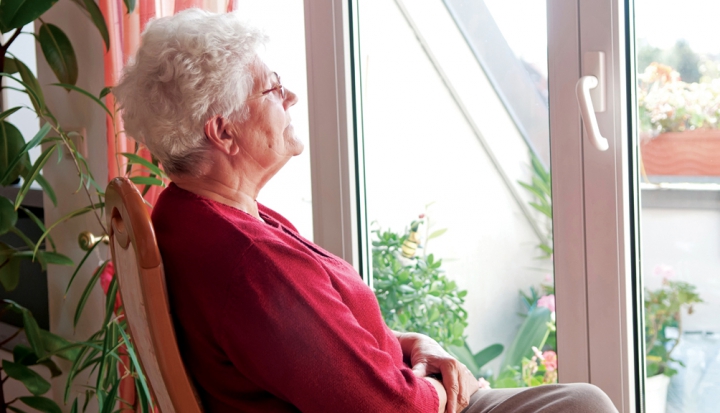As a child, Laura Anthony visited her grandmother, who had Alzheimer’s, every weekend after Mass.
“As a kid I never knew what to talk about,” she says. “It was so awkward.”
Years later, after her mother was diagnosed with Alzheimer’s, Anthony drove most weekends from Bradenton, Florida to provide care and company for her mom and dad in Citrus County.
“One day my dad and I were sitting at the breakfast table having one of our long conversations. She was there doing word search books – that was her passion. I don’t know what possessed me to ask her, but I said, ‘Mom, what was the most important thing you learned in life?’ I didn’t really expect her to answer. She looked up at me, out the window, over to the birdbath. Several minutes went by. I thought, well, she’s not going to answer that question.
“All of a sudden she turned to me and said, ‘Well, Laura, that’s a really good question.’ She said, ‘Kindness is the most important thing.’ She went on to describe why — you never know what someone has gone through in life, and what issues they’re facing. She went on and on. I had goosebumps. That was sort of the beginning of me thinking differently.”
Anthony, who has a master’s in public health, went on to write a book to help other families connect with a loved one: The Most Important Lesson: What My Mother Taught Me That Will Change Alzheimer’s and Dementia Care Forever (Morgan James). A companion workbook is designed to help loved ones suss out what Anthony calls the “soul wisdom” of someone descending into Alzheimer’s disease, either through conversation or by encouraging the sufferer to fill in responses to phrases such as:
“What does the world need less of?”
“I’m glad I had the opportunity to…”
“Do you believe in heaven?”
“What I learned through the whole process of caring for my mother is that, even though she couldn’t remember what she did 10 minutes ago, even though she would forget she wore the same clothes the day before, she could sit down and have an amazing conversation with you about life … about forgiveness and laughter and love. She could talk so much that, if you had that conversation with her, you probably wouldn’t know she has Alzheimer’s disease.”
By the time her mother died on Good Friday in 2012 at age 83, Anthony felt she and her mother had been blessed with moments of reprieve from the disease.
“It’s easy to believe if a person can’t remember what they did two hours before, you can’t have this kind of soul conversation with them,” she says. “The goal of my book is to tell you that you can. And you can get back a lot of the person that you lost.”
This is a web-only sidebar that accompanies the article “Mind, body, and soul” which appeared in the October 2014 issue of U.S. Catholic (Vol. 79, No. 10, pages 18-22).
Image: ©iStock/luna4













Add comment